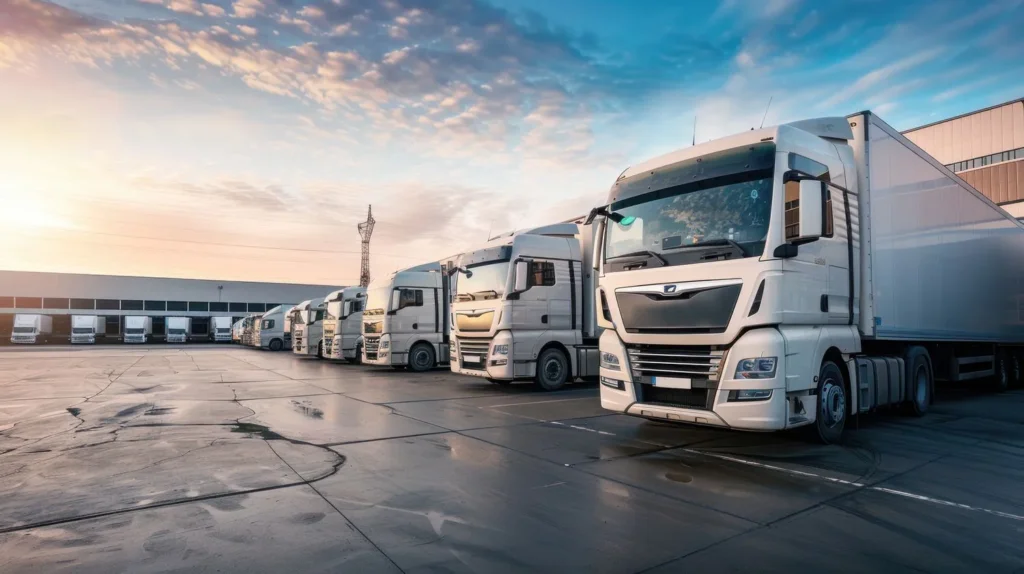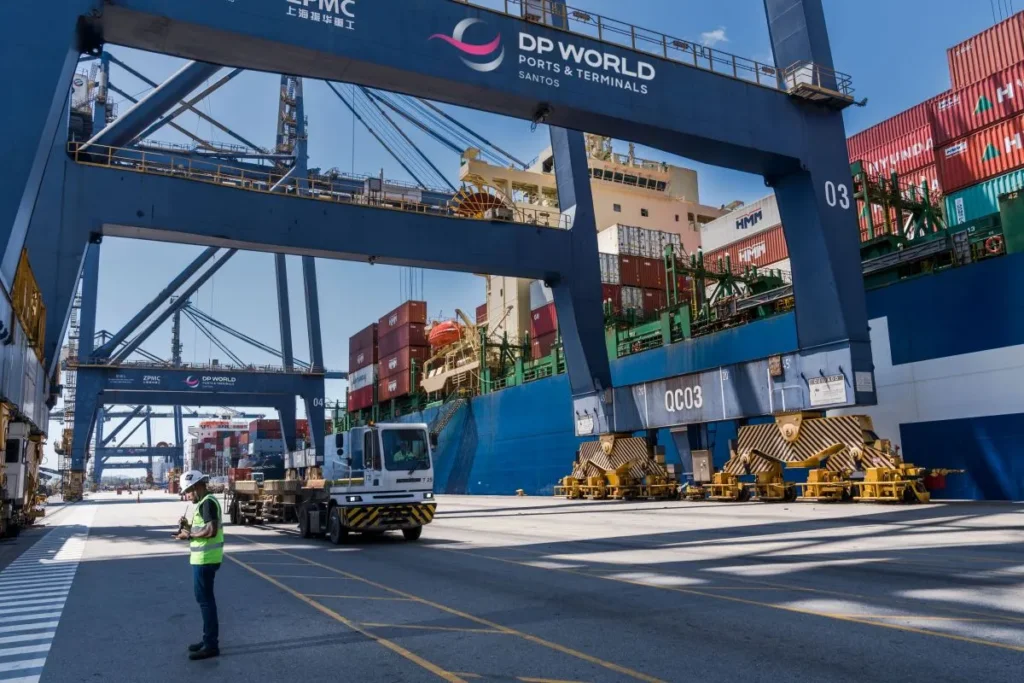The EU Commission estimates the EU’s investment backlog in comparison with the USA and China at around 190 billion euros per year. Under these conditions, business models with a monopoly claim from Europe can hardly hold their own against the big top dogs from overseas, says Prof. Dr. Dr. H. c. Michael ten Hompel, managing director of the Fraunhofer Institute for Material Flow and Logistics IML.
In this interview, he talks about why we in Europe now need an alternative to Silicon Valley for the B2B area, how innovative logistics are and how platform businesses will develop in the next few years.
Natalia Jakubowska, Trans.INFO: With the research project Silicon Economy, Fraunhofer IML wants to help achieve a breakthrough for a decentralized and open platform economy in Germany and Europe as an alternative to Silicon Valley. How is that supposed to work?
Prof. Dr. Dr. H. c. Michael ten Hompel, Professor of Material Flow and Logistics Management at the Technical University of Dortmund and managing director of the Fraunhofer Institute for Material Flow and Logistics IML: An open and federal platform economy requires extensive cooperation between logistics and IT companies and joint development of open standards based on open source software. In order to motivate and establish this joint development, Fraunhofer IML and its project partners are making all results of the Silicon Economy project available as open source. On the one hand, we are developing a silicon economy infrastructure and the necessary basic components; on the other, we are building an open source platform and a developer and user community. Specifically, an infrastructure with a minimal entry threshold is being created for companies of all sizes, as well as for an international community of developers. At its core is a library of open source components that not only describe open standards for data, interfaces and processes, but also make them applicable.
Why haven’t platforms caught on as well in Europe as they did in the USA and China?
There is a lack of money and funding. The EU Commission estimates the EU’s investment backlog compared to the USA and China at around 190 billion euros per year. Under these conditions, business models with a monopoly claim from Europe can hardly hold their own against the big top dogs from overseas. So now we need a Counter-concept for the B2B sector in Europe: a federal, decentralized and open platform economy – a silicon economy – not just for logistics.
Alibaba, Google, Amazon are prime examples of platforms. What makes this so attractive?
The business models of these platforms are based on the fact that they virtualize a business and sometimes even an entire industry and incorporated it in one platform – and thus make the end customer’s life easier. The world’s largest room rental company, Airbnb, doesn’t have its own hotels, and the world’s largest taxi company, Uber, doesn’t have its own vehicles. This list of B2C platforms is long and they are so attractive because they are easy to use and offer all the necessary services from a single source. The users do not have to worry about the organization, but can concentrate on their concerns. However, the monolithic platforms separate the classic providers from their customers and switch between them. This is exactly what is happening in the B2B area.
So how can you transfer the potential of B2C platforms to B2B business?
One can certainly learn a lot from the success of the American and Chinese B2C platforms, but the European approach to an open platform economy in B2B business is different. In addition, the Unicorn business models of Silicon Valley are only of limited suitability for the complex B2B structure of logistics. It is often not even possible for a single logistics company to develop solutions quickly and swift enough for the platform economy that is undoubtedly to come. That is exactly what we can do with the Silicon Economy – decentralized, federal and together. One could put it simply: Silicon Valley was yesterday, Silicon Economy is tomorrow. Silicon Valley is B2C, with relatively simple business models, while Silicon Economy is B2B with AI-controlled processes.
The platform economy has a huge impact on business models. What specific consequences will this have for medium-sized companies?
The legitimate goal of oligopoly platforms is to occupy the interfaces to the customer and to direct the data flows and underlying business processes permanently to their platforms. This also includes logistical services if they promise sufficient profit. As I said, platforms are successful in the end customer business if they are easy to use and a direct added value is recognizable for the user. It’s no different in the B2B logistics business. The threshold for companies to participate in the silicon economy must be as low as possible and the benefits must be immediately recognizable. Therefore we rely on open source. Ultimately, everyone can download components and set their own business model on them – from the simple driver app to blockchain-based billing. This possibility is unique and will set standards.
One thing is important to me at this point: Our Silicon Economy project is not about competing with companies or explaining their business to logistics service providers. It is about creating common foundations and making them applicable to enable new business models.
Discussions about the platform economy are often associated with technologies such as AI, machine learning, blockchain, big data. Is the logistics innovative enough?
A resounding yes! Like no other industry, logistics is highly standardized in detail and predestined for the comprehensive use of platforms and processes of artificial intelligence. That is why logistics will also be the first industry in which AI processes will prevail on a massive scale. This makes logistics a key sector of digitization.
The success of platform business models is based on data. But what about the data security of platforms?
This is exactly where we start with the silicon economy. An essential aspect is that we ensure data sovereignty and secure the actual data exchange. In order to be able to trade the usage of the data, we have to combine the usage with the data itself. This side of the silicon economy is linked to the International Data Spaces and GAIA-X. In highly distributed and federal ecosystems such as the silicon economy, we need data rooms in which data can be securely and confidently exchanged. The International Data Spaces meet our need for data protection and data sovereignty, as we understand it in Germany and Europe. The goal is that we give every company, whether large, medium or small, the security that it retains sovereignty and control over its data and does not have to fear that it has to give up its business model or give away its data and that it is not undermined by platforms or “Data Lakes”.
For some time now, the EU has been calling for greater regulation of the digital economy. Do you think this is necessary? Can you regulate without creating obstacles at the same time?
Direct intervention in the market is prohibited unless applicable legislation, e.g. in antitrust or tax law, is affected. If, however, regulation is used to ensure that the digital economy follows our social norms and goals, then I consider accompanying measures to be the right ones. Digitization will change our society and we should actively shape this process. It will be all the more important that European companies play an essential role in an industrial platform economy with its distributed artificial intelligence – then our standards can be enforced much more easily. One thing is clear, however: the world will turn upside down with and without us – simply because it can.
How do you estimate the development of platform businesses in Europe over the next few years? What future prospects are there for Germany?
The die is cast in the private customer segment (B2C). Platforms like Amazon and Alibaba dominate both the business models and the related processes. In the field of B2B platforms, a decision is only just being made about who will be ahead in the future. The platforms and AI algorithms that will penetrate logistics innovatively and fully will win. If we don’t want to lose this market too, we now have to raise awareness in politics and business that German and European companies still have the chance to shape the silicon economy significantly. Sometimes I have the impression that many do not understand the scope of the subject. Let me put it this way: whoever controls the world’s logistics chains controls the world’s economy.
A turbulent year 2020 is behind us, how will you remember it? Is there anything that particularly impressed you?
With all the negative news and restrictions, I was particularly impressed that logistics once again played and will continue to play an essential and positive role, for example when it comes to maintaining supplies or distributing vaccines as quickly as possible. In doing so, it underscores its claim to be an essential engine of the global economy.
For me personally, it is a very special moment to see how we are turning the shared vision of the silicon economy into reality from the center of Europe. It is fascinating to see the enthusiasm with which over a hundred colleagues at the institute are working on this new world. And with the funding from the Federal Ministry of Transport and Digital Infrastructure and the North Rhine-Westphalia Ministry of Economics, we finally have the chance to play at the very front.
What projects are on your agenda this year?
We started with numerous development projects in the silicon economy and in 2020 we presented the first results such as the first “Blockchain Device” and the LoadRunner® swarm. In 2021 we will again be showing many presentable developments. Because the silicon economy is being developed in an agile manner. This means that we each have small groups of experts who deal with very specific topics and then implement them in the form of software and hardware. The development takes place in sprints with clearly defined goals that can be achieved in a short time. We have set ourselves the goal of launching an innovation every six to eight weeks and some of them – like LoadRunner® and Blockchain Device – will be the first of their kind.
Photo: Fraunhofer Institute for Material Flow and Logistics IML











